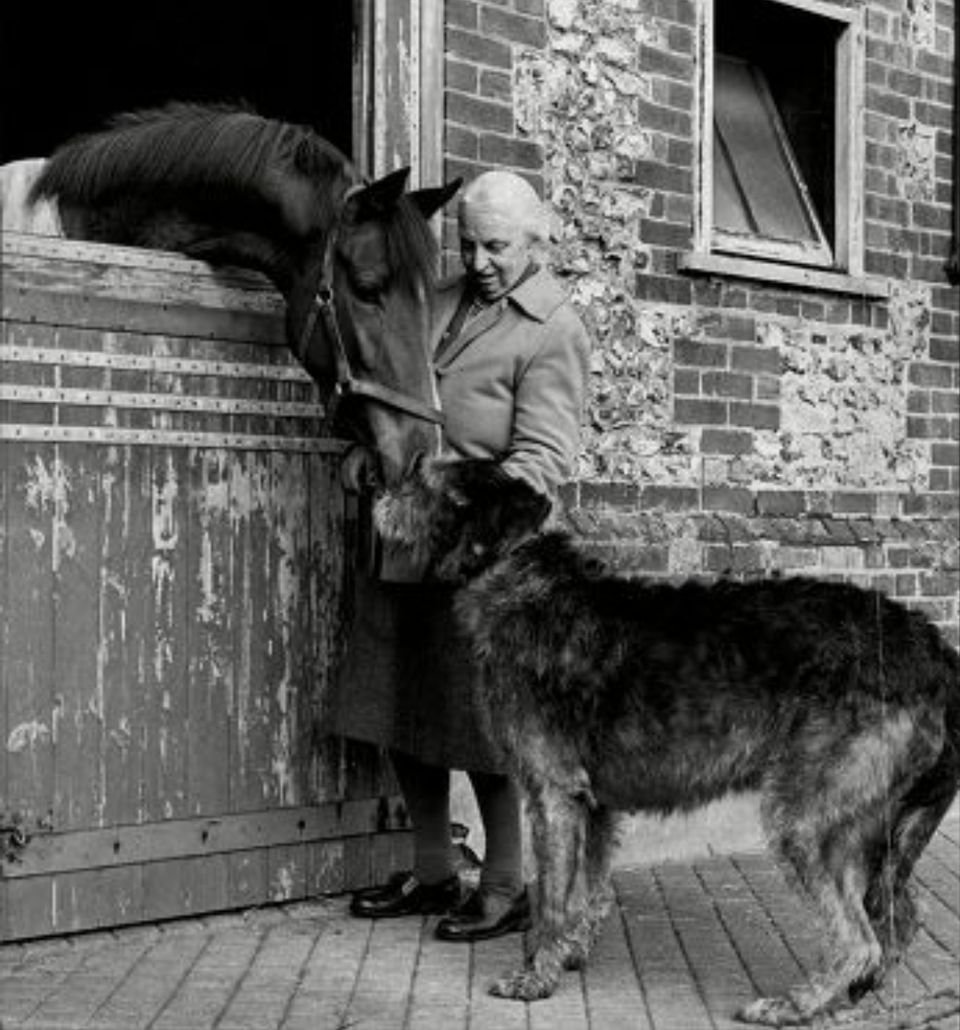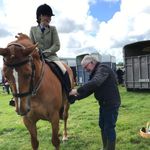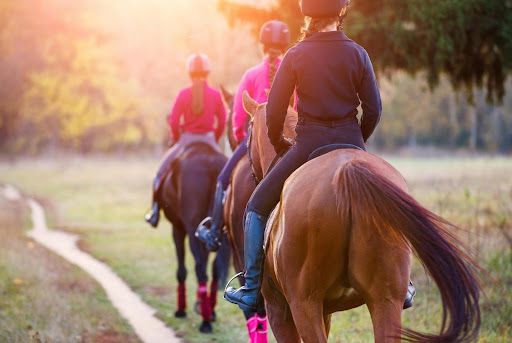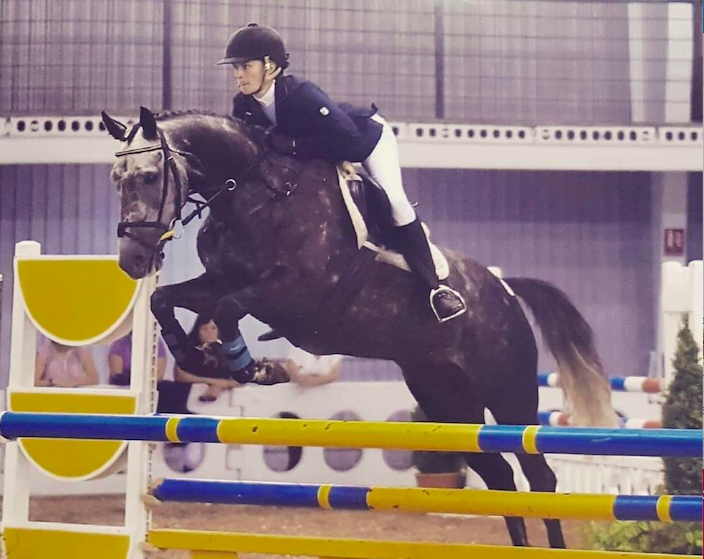The Evolution of Women in the Racing Industry

Anne Bullitt Biddle, Toby Wellesley, Peggy St. John Nolan. What do you think when you see these three names?! What comes to mind!? How about Flying Tiger - August 31th 1966 in Naas Racecourse? Most of you reading this will not recognise these names. I know I did not. These are the glass ceiling breakers, the truly inspirational ladies who ‘fought the law and won’!
Our job, our responsibility and our power as a womens’ movement is to continue to not only break the ceiling but to annihilate it. My hope would be to rid ourselves of that glass ceiling. As a female in the equine world I look to these feisty and fabulous groups of accomplished women for my inspiration.
On August 31, 1966, Anne Bullitt Biddle, an American heiress with a fascinating history, was based at Palmerstown Stud in County Kildare. Anne made Irish racing history when sending out Flying Tiger to win the Cork Stakes at Naas.
Mrs Biddle was the first woman to officially train a winner in Ireland. This was after the Turf Club lifted a discriminatory ban, previously circumvented by several determined women using the subterfuge of having a male name on the license. Toby Wellesley trained big-race winners with the licence held by her headman. Wellesley and the formidable Peggy St. John Nolan had a 1959 Irish Grand National triumph with Zonda. It officially credited this to Matt Geraghty on the day. Wellesley's big-race winners, after her separation from her husband Ginger Wellesley, appear in the record books under the names of Eddie McGrath and Patrick Connolly.
These are racing - lady pioneers.
Meriel Tufnell: Scorched Earth 1972 Kempton: Goya Stakes
Meriel Tufnell became the first female jockey to partner a winner in Britain under the rules of racing. It took place on May 6, 1972, at Kempton, aboard her mother's Scorched Earth. It was the first time female jockeys could race, so Tufnell partnered a winner on her first-ever ride. She retired from race-riding in 1975 and received an MBE the following year. Since 1977, female jockeys have ridden in the Grand National following the passing of the Sex Discrimination Act of 1975. 19 female jockeys have entered the Grand National since then. Charlotte Brew on her horse, Barony Fort, was the first woman to compete in the race, in 1977.
Nina Carberry: Leading Run 2006 Punchestown festival: Champion Bumper (Grade 1)
Nina Carberry became the first female jumps jockey to win at the highest level in Britain or Ireland. She partnered the 4-1 favourite Leading Run to victory in the Champion Bumper at the Punchestown Festival for trainer Noel Meade.
Helen Bryce Smith is one of Ireland's most successful Irish Point-to-Point lady riders, having partnered 109 winners between the flags. A record which was set over fifty years ago, Liz Lalor has been chasing this record and now, amazingly, sits on 114 career winners.
Caroline Jennings is the upcoming leading trainer in Australia, and she is Irish-born and bred! 2020 saw Jennings go out on her own, securing a licence and becoming the head trainer at Victoria-based yard, Kennedy Racing. An undoubtedly complicated year, but the outcome was straightforward - Six winners from 21 starts, 48% of all runners placing. Outstanding results - of which I am very sure took no end of knowledge and training.
Florence Nagle (26 October 1894–30 October 1988) is the most fascinating lady I have come across in all my research for this article. Described as the ‘Mrs Pankhurst of British Racing’, Mrs Nagle has a fascinating history not only in racing but in breeding thoroughbreds and pedigree dogs.
Nagle trained her first racehorse in 1920; the Irish-bred colt Fernley. This was still when women had no choice but to employ men to hold a Jockey Club trainer's licence on their behalf or, sometimes, to get licences in the names of their husbands. Nagle worked peacefully to redress such injustices to her gender. She successfully challenged the well-established leading gentlemen's clubs of the racing and canine worlds over their gender inequality. 1966 became one of the first two women in the United Kingdom licensed to train racehorses legally in their names.
Nagle credited herself with "dragging the Jockey Club into the twentieth century,". She said: "This was a matter of principle. I am a feminist. I believe in equal rights for women. Things should be decided by ability, not sex," When asked by a journalist in the late 1970s if she thought women could ever match men on the racecourse, Nagle replied: "My dear man, it used to be said women couldn't stand up to three-day-eventing. Now they're beating the men regularly–and the same will happen in racing. Give them time."
In the mid-1980s, still dissatisfied with the lack of opportunities for women jockeys in Britain, Nagle sponsored a race at Kempton Park Race Course, ‘The Florence Nagle Girl Apprentices' Handicap’. The first event took place in 1986. Before the race, John Oaksey wrote in the Daily Telegraph that Nagle was “no doubt looking down from her celestial cloud with approval”. She subsequently wrote to inform him she was still alive, but that when the time came she “expected to end up in a hotter place and there to meet most of her racing friends"
These are the ladies who we should be looking up to - the true change-makers of our industry. These are women who have inspired and worked tirelessly to change the perceptions of a racing nation.
We now are very privileged to have extremely prominent lady trainers and generations of families taking over empires of the racing world. This never-ending list of strong and versatile ladies could go on for many pages - all equally amazing. However, I would like you to look at one thing - the dates! 1966 was when - THE FIRST FEMALE LEGALLY TRAINED A WINNER ON THE TRACK IN IRELAND - that was only 56 years ago. 56 years of building a foundation of improvement for all future generations of ladies in the racing industry. 56 years of what we, as a racing generation, now take for granted.
Racing has come a long way in these years. - we now have amazing facilities being put into place regardless of gender - nothing is perfect but everything is a work in progress. As of 2019, there were officially more females in training to become jockeys than their male counterparts in RACE in County Kildare. Imagine what Florence Nagle would have made of that!
Ireland has a continuing amazing history with the horse racing industry and who knows where we will be with gender equity in our industry in another 56 years. I, for one, would hope with movements like Equitas, with women supporting women all across the world with our positive movement we can make the impact we all deserve. Here is to creating a tribe of women empowering women to annihilate that glass ceiling.




